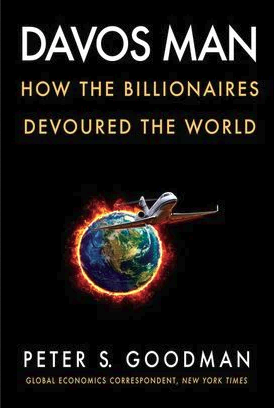Epic History TV
Published 29 Apr 2022Thank you to our video sponsor Displate. Get exclusive discounts on metal posters, including original EHTV artwork, using this link:
https://displate.com/epichistorytv?ar…Big thanks to Legendarian for Total War: Attila gameplay footage, check out his YouTube channel here: https://www.youtube.com/channel/UCOI2…
Big thanks also to our series consultant Professor David Parnell of Indiana University Northwest, who you can follow on Twitter here: https://twitter.com/byzantineprof
Total War: Attila gameplay footage used with kind permission of Creative Assembly – buy the game here: https://geni.us/qDreR
Support Epic History TV on Patreon from $1 per video, and get perks including ad-free early access & votes on future topics https://www.patreon.com/EpicHistoryTV
🎨 Original artwork by Miłek Jakubiec https://www.artstation.com/milek
📚Recommended reading (as an Amazon Associate I earn from qualifying purchases):
📖 Procopius, History of the Wars https://geni.us/L3Pgc
📖 The Wars of Justinian by Michael Whitby https://geni.us/Xxrd3
📖 Rome Resurgent by Peter Heather https://geni.us/ZFoU1
📖 The Armies of Ancient Persia: the Sassanians by Kaveh Farrokh https://geni.us/jMQo3z
📖 Late Roman Cavalryman AD 236–565 (Osprey) by Simon MacDowall https://geni.us/XMGl👕 Buy EHTV t-shirts, hoodies, mugs and stickers here! teespring.com/en-GB/stores/epic-histo…
🎶Music from Filmstro: https://filmstro.com/?ref=7765
Get 20% off an annual license with this exclusive code:EPICHISTORYTV_ANN“Rites” by Kevin MacLeod https://incompetech.filmmusic.io/song…
License: https://filmmusic.io/standard-license#EpicHistoryTV #RomanEmpire #EasternRomanEmpire #Justinian #Belisarius #ByzantineEmpire
May 5, 2022
Belisarius: The Last Battle
Paul Wells reviews Davos Man by Peter S. Goodman
Paul Wells — now on Substack — considers an unusual-from-a-Canadian-perspective critical book on the World Economic Forum and the people who attend their exclusive shindigs in Davos, Switzerland:
I’ve been reading Peter S. Goodman’s Davos Man, a tough, angry — not entirely persuasive — critique of the sort of people who get top-level access to the World Economic Forum in Davos, Switzerland. Because Goodman’s vantage point is left-by-centre-left, his book provides fascinating counterpoint to a polemic about the WEF that is, in Canada, the almost exclusive preserve of the right.
[…]
Politicians who make a show of having a problem with Davos should explain what the problem is; why they didn’t raise their concerns when cabinet colleagues were lining up to go; and what solutions, if any, they propose. Otherwise they might seem to be faking their indignation to lure a few votes.
Second, it’s easy to see why Davos catastrophism has taken root in some corners of the electorate. We are coming off a COVID pandemic, after all. Very early, only weeks into this historic disaster, the WEF was quick to start discussing visions of a green egalitarian future with prominent roles for green progressive governments and Davos regulars. This was the “Great Reset”, which I discussed here in a magazine. Soon Trudeau was on video calls saying, “This pandemic has provided an opportunity for a reset. This is our chance to accelerate our pre-pandemic efforts to reimagine economic systems.” Which was jarring. Still is. Soon people were digging up old video of Klaus Schwab, the WEF founder, bragging about “penetrating the cabinets” of Western countries with “Young Global Leaders of the World Economic Forum”.
People who didn’t like everything that’s happened since — vaccines, lockdowns, restrictions — started reading great significance into all kinds of perceived Davos connections. Often Trudeau has seemed eager to help. Replacing his finance minister with the only member of his cabinet who sits on the WEF Board of Trustees, while yet again blathering on about how “we can choose to embrace bold new solutions to the challenges we face and refuse to be held back by old ways of thinking” was … loopy, sure, but it probably only accidentally resembled the second act of a Bond movie.
Bringing an element of novelty to all this is Peter S. Goodman, the Global Economics Correspondent of the New York Times. Even if he were Canadian, nobody should expect Goodman to support Poilievre for Conservative leader. Davos Man is a furious diatribe, not against the WEF as an institution but against many of Davos’s richest regulars — and it’s written from a consistently social-democratic perspective.
From its subtitle, “How the Billionaires Devoured the World”, Davos Man relentlessly skewers some of the most glamorous Davos habitués — Amazon gillionaire Jeff Bezos, Blackstone founder Stephen Schwarzman, BlackRock CEO Larry Fink, banker Jamie Dimon, Salesforce guy Marc Benioff. And their, you know, ilk.
“Over recent decades, the billionaire class has ransacked governments by shirking taxes, leaving societies deprived of the resources needed to combat trouble,” Goodman writes. Davos Man — Goodman has borrowed the term from Samuel Huntington — “is a rare and remarkable creature, a predator who attacks without restraint … expanding his territory and seizing the nourishment of others.” Goodman’s language is consistently violent. The billionaires “eviscerate financial regulations”, “defenestrated antitrust authorities”, “squashed the power of labor movements”.
The Forgotten Battle: The story of the Battle for the Scheldt
Omroep Zeeland
Published 18 Mar 2020Documentary directed by Margot Schotel Omroep Zeeland (2019) about the battle of the Scheldt. An large and important battle in the autumn of 1944, which was crucial for the liberation of the Netherlands and Europe
After D-Day (6 June, 1944), the Allied Forces quickly conquered the north of France and Belgium. Already on 4 September they took Antwerp, a strategically vital harbor. However, the river Scheldt, the harbor’s supply route, was still in German hands. Montgomery was ordered by Eisenhower to secure both sides of the Scheldt, the larger part of which is located in the Netherlands, but Montogomery decided otherwise and started Operation Market Garden. He left the conquest of the Scheldt to the Canadians and the Polish Armies who then had to fight a much stronger enemy that was ordered by Hitler himself to keep its position at all costs. Even though Market Garden eventually failed, it received an almost mythological status in the narrative about the World War II, while the successful battle for the Scheldt was never really acknowledged by history.
With the cooperation of Tobias van Gent, Ingrid Baraitre, Carla Rus, Johan van Doorn ea.
Blijf op de hoogte van het laatste Zeeuwse nieuws:
Volg ons via:
Instagram: https://www.instagram.com/omroepzeeland/
Twitter: https://twitter.com/omroepzeeland
Youtube: https://www.youtube.com/c/omroepzeeland
QotD: Critical Race Theory, the “successor ideology”
The reason “critical race theory” is a decent approximation for this new orthodoxy is that it was precisely this exasperation with liberalism’s seeming inability to end racial inequality in a generation that prompted Derrick Bell et al. to come up with the term in the first place, and Kimberlé Crenshaw to subsequently universalize it beyond race to every other possible dimension of human identity (“intersectionality”).
A specter of invisible and unfalsifiable “systems” and “structures” and “internal biases” arrived to hover over the world. Some of this critique was specific and helpful: the legacy of redlining, the depth of the wealth gap. But much was tendentious post-modern theorizing. The popular breakthrough was Ta-Nehisi Coates’ essay on reparations in the Atlantic and his subsequent, gut-wrenching memoir, Between The World And Me. He combined the worldview and vocabulary of CRT with the vivid lived experience of his own biography. He is a beautifully gifted writer, and I am not surprised he had such an emotional impact, even if, in my view, the power of his prose blinded many to the radical implications of the ideology he surrendered to, in what many of his blog readers called his “blue period”.
The movement is much broader than race — as anyone who is dealing with matters of sex and gender will tell you. The best moniker I’ve read to describe this mishmash of postmodern thought and therapy culture ascendant among liberal white elites is Wesley Yang’s coinage: “the successor ideology”. The “structural oppression” is white supremacy, but that can also be expressed more broadly, along Crenshaw lines: to describe a hegemony that is saturated with “anti-Blackness”, misogyny, and transphobia, in a miasma of social “cis-heteronormative patriarchal white supremacy”. And the term “successor ideology” works because it centers the fact that this ideology wishes, first and foremost, to repeal and succeed a liberal society and democracy.
In the successor ideology, there is no escape, no refuge, from the ongoing nightmare of oppression and violence — and you are either fighting this and “on the right side of history”, or you are against it and abetting evil. There is no neutrality. No space for skepticism. No room for debate. No space even for staying silent. (Silence, remember, is violence — perhaps the most profoundly anti-liberal slogan ever invented.)
And that tells you about the will to power behind it. Liberalism leaves you alone. The successor ideology will never let go of you. Liberalism is only concerned with your actions. The successor ideology is concerned with your mind, your psyche, and the deepest recesses of your soul. Liberalism will let you do your job, and let you keep your politics private. S.I. will force you into a struggle session as a condition for employment.
Andrew Sullivan, “What Happened To You?”, The Weekly Dish, 2021-07-09.






